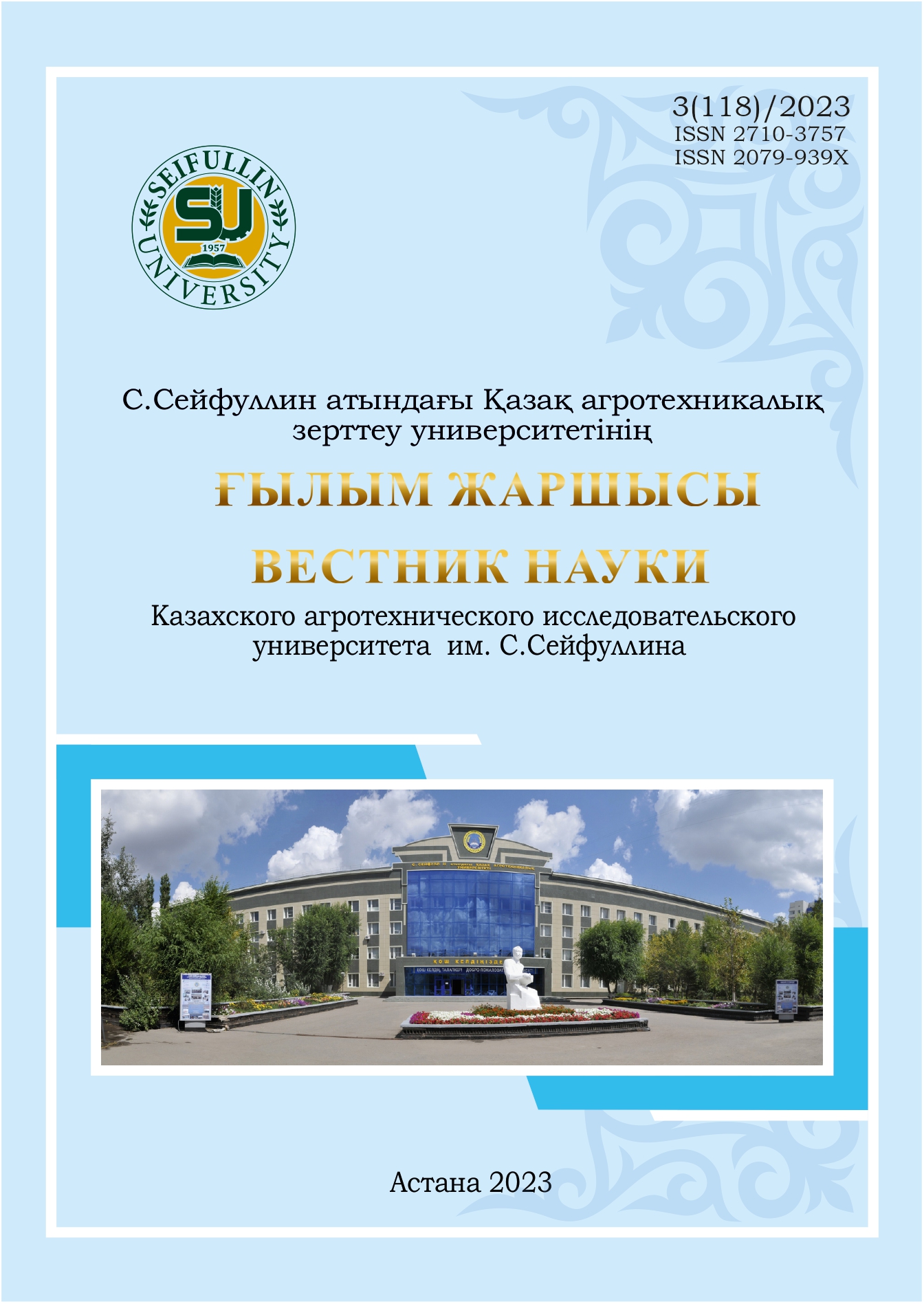IMPROVEMENT OF HYBRIDS OF AFRICAN MILLET AND SUDAN GRASS TO IMPROVE FORAGE IN PRODUCTION IN THE CONDITIONS OF SOUTHERN KAZAKHSTAN
DOI:
https://doi.org/10.51452/kazatu.2023.3(118).1465Keywords:
sudan grass; African millet; yield; plant green weight; plant height.Abstract
In the south-east of Kazakhstan, it is a forage crop of valuable quality, providing high green mass and grain yield of drought-resistant crops (dropsy and African millet). Subject to the cultivation technology, the yield of green mass of water grass was 40 t/ha and of African millet 40 t/ha, grain - 1.7 t and 2.2 t/ha, respectively. For cultivation in the republic, it is necessary to widely produce crops of water grass and African millet, the most adapted to the extreme agro-ecological conditions of an annual crop.
Thus, the most effective solution to the problem is the rapid introduction of drought-resistant high-yielding crops that can be grown throughout the country.
The most effective solution to problems is the introduction of high-yielding crops that are resistant to severe drought. Sudan grass and African millet are promising for dry areas.

